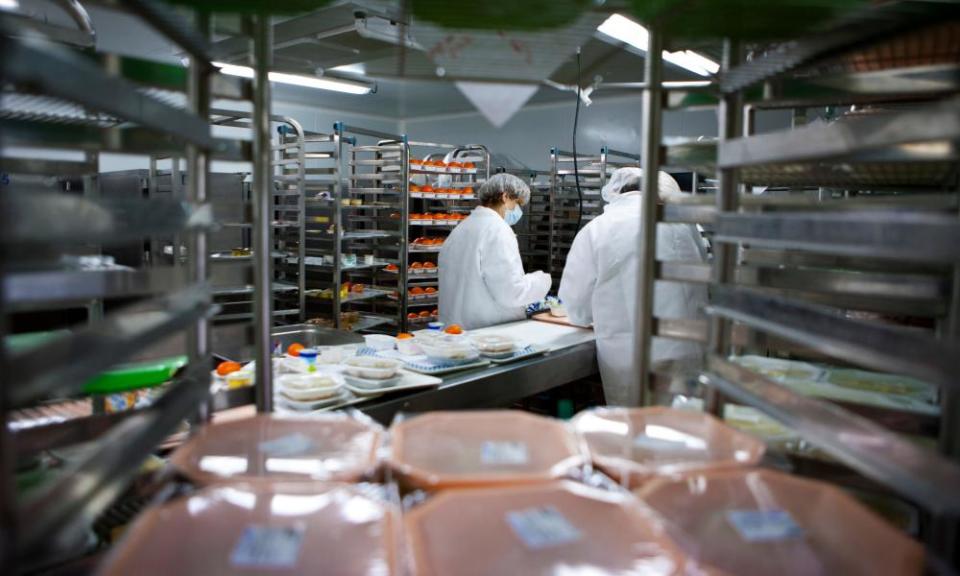Catering firm Compass reports profits crash amid Covid closures

Profits have crashed at Compass Group, the world’s biggest catering firm, after the Covid-19 pandemic led to the closure of schools, offices and sporting venues that it supplies.
Compass was forced to shut about half of its operations during Covid-19 lockdowns in the spring. This led to a 75.9% drop in the firm’s profits before tax to £427m for the year to 30 September, from £1.77bn in the previous year. Revenues were down 18.8% at £20.2bn.
Compass said parts of the business, including schools, factories and offices, gradually reopened over the summer and by September, all sectors except sports and leisure venues were partially or fully open, equivalent to almost two-thirds of its operations. However, at that point a number of local lockdowns were imposed as a second wave of infections began.
Compass said the food catering market, estimated at £220bn, remained very attractive. It has decided to focus on the more resilient sectors – supplying healthcare organisations including the NHS, the Ministry of Defence, care homes, schools and universities, as well as oil rigs and mining operations in Australia. About 60% of its business is in North America, where it sees opportunities in pushing into private healthcare and care homes.
Its business supplying offices has been hit hard as large numbers of people have been working from home since the coronavirus outbreak. In the UK, the government has advised people to work from home where possible until April. The firm believes there will eventually be a return to more office working, but not necessarily five days a week.
Sports venues have been closed since March, but Compass was cheered by news that stadiums will be allowed to reopen from 2 December when the current lockdown in England is eased. It supplies the Chelsea and Tottenham football stadiums as well as the O2 Arena and the Twickenham rugby stadium.
Dominic Blakemore, the chief executive, said: “The Covid-19 pandemic has had a profound impact on Compass.” He described the prospect of a vaccine as encouraging, but said the resumption of lockdowns in some big markets meant it needed to take proactive action.
Compass has simplified its catering services by offering pre-packaged meals and contactless payment. It is investing in apps and kiosks where customers can collect pre-ordered food, particularly in the US. It is also doing more food delivery, for example to student dorms on US university campuses.
The firm raised £2bn from investors to shore up its finances in May, one of the biggest fundraisings since the Covid outbreak. It received £437m of government support and furloughed 70% of its staff in Europe through state job retention schemes. Where government support has ended, it has cut its workforce, in particular casual workers who work in sports and leisure.
Amisha Chohan, the investment director at Quilter Cheviot, believes Compass would fare well in the long run. “Operating in a fragmented market, with over 10% market share, it is well-positioned, especially post-Covid-19, to capitalise from an increasing trend of outsourcing catering services as it is cheaper and safer,” she said.

 Yahoo Finance
Yahoo Finance 